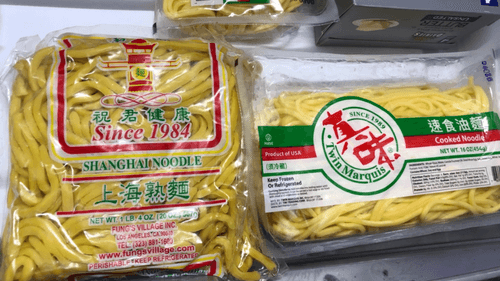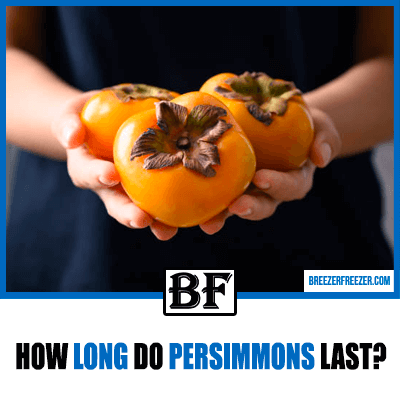Can You Freeze Cooked Noodles?
We have all been there more than once, you cook the noodles, and you have cooked more than you could possibly eat. It’s hard to judge just how many noodles you should cook. Not enough, and your meal is not going to be satisfying. Too many, and you have a situation on your hands. You could eat pasta for breakfast, lunch, and dinner for days. Can you freeze leftover pasta?

Did you know that Italians eat over 60 lbs of noodles per person annually? Noodles are a staple food in many countries across the world, providing sustenance at an affordable price. Noodles contain nutrients and are considered healthy food due to its low caloric value.
Everybody knows that noodles last a long time dry but add water, and it’s a whole new ball game. This article investigates how to store noodles once they have been cooked. We answer many frequently asked questions providing you with factual information.
Let’s get into it.
Do noodles expire?

Yes, noodles expire. They are perishable food and, as such, have a limited shelf life once cooked.
We all know how versatile noodles are and how much they are beloved worldwide. We also know that noodles are essentially flour and water with egg, and when they are made and dried, the shelf life is almost indefinite if they are started correctly.
Whereas homemade noodles are delicate and need to be handled gently if they are to have any shelf life past a day.
But as soon as we add noodles to hot water, the process of storing noodles becomes a different ball game. If they are not eaten in one sitting, it can be hard to know if noodles can be stored.
To avoid waste, most of you will look to the fridge for the best way to stir leftover noodles, which is the right way to think. Chill the noodles to prevent bacteria growth. But will it prevent the noodle from becoming dry?
Noodles will dry out in the fridge, so they should be stored correctly. You can store cooked noodles in the fridge by placing them in an airtight container such as a Ziploc bag.
By sealing the cooked noodles in an airtight container, the moisture will be retained in the noodles to a greater extent.
But what happens if the noodles are covered in sauce? Can they still be preserved in the fridge? The answer is yes, but it will depend heavily if it’s just sauce or other ingredients like proteins or cheese that may expire before the noodles.
There may be more to storing cooked noodles than meets the eye.
Do cooked noodles need to be refrigerated?

Yes, this is primarily about food safety. When your noodles have coles to room temperature, they can be placed in an airtight container in the fridge. It can be a Tupperware-style container with a sealable lid, a Ziploc bag, or similar.
Place the cooked noodles in the back of the fridge, this is the coolest part, and the noodles will store better at a consistent temperature. Stored in this manner, they will last for 3 to 4 days.
How about if the noodles are covered with sauce? You can still store the noodles in the same way, but the shelf life may be reduced depending on the freshness of the ingredients.
In general, most proteins, including shrimp, will be fine in the fridge for 3 days.
Should you store dry noodles in the fridge? No, but if you live in warmer climates, storing them in an airtight container is worthwhile. Some ants can easily penetrate the wrapping of noodle packets in search of a meal.
Do cooked noodles have to be covered?
It is best to cover them, as it will retain the moisture in the noodle and contain any bacteria that is on the food. If they are not covered, it’s not so easy to pop them in the microwave for fast reheating. You may have to boil them for a minute or so to rehydrate them.
If the noodles are covered in sauce, ensure they are covered. The sauce may taint the foods in the fridge if it has garlic or onion as part of the ingredients.
Covering cooked food also is good housekeeping and a habit you should become accustomed to.
Can you put warm noodles in the fridge?

It is not advisable.
If you read online that you can’t put warm noodles in the fridge because of condensation coalescing into water droplets that will drip and make your noodles soggy and less appealing. If this is the reason why you can’t put the warm noodles in the fridge, you are misinformed.
Your fridge temperature will be 40℉ -18℃ or a little lower. Placing warm noodles in the fridge will elevate their temperature while it radiates heat.
Your fridge may not be as efficient as you might have thought at removing heat. Most fridges take hours to come to 40℉ after being switched on after cleaning.
So, what’s the big deal? The big deal is that food sitting at a temperature of 40-140℉ is in the food danger zone. It’s not just your noodles. It is the contents of the entire fridge.
Above 40℉-18℃ bacterial growth on perishable foods will accelerate exponentially. It should be discarded if the food remains at an elevated temperature above 40℉-18℃ for just two hours.
Seems harsh? According to the USDA, after two hours in the food danger zone, perishable foods contain enough bacteria to cause food poisoning.
Furthermore, the noodles should be covered in the fridge so there will be no condensation!
How long can warm-cooked noodles sit out?
Two hours. Remember the food danger zone? According to the USDA, perishable goods sitting out for two hours should be discarded, and the bacteria growth on the food has multiplied rapidly, making the food unfit for consumption.
Eating food sitting out for two hours or more could cause food poisoning.
Do unopened noodles go bad?
If they are stored correctly, they will not go bad. Died noodles have an indefinite shelf life if they are not exposed to moisture.
Place the dry noodles in an airtight container and leave them in the pantry kitchen cabinet for as long as you wish.
Noodles come in cans, and spaghettiOs can last for years past their expiry date. Of course, the one caveat is that the can is in good shape, with no dent and no leakage. No swelling or rust.
How long does cooked pasta last in the fridge?
3 to 5 days. Noodles are pretty resilient, and when it comes to storing cooked noodles, they do have a reasonable shelf life. It doesn’t mean you should cook them and place them in the fridge. They cook in ten minutes, so the advantage would be negligible, if any.
When it is cool, it is essential to place cooked noodles in an airtight container. This will keep the noodles fresh and moist. You can reheat them in seconds in the microwave when you want to eat them.
Do frozen noodles go bad?
In theory, cooked noodles stored at 0℉ or below should have an indefinite shelf life in the freezer. But the truth is they only last for about two months.
Continually freezing will break the texture of the noodles with ice crystal formations, making it a sloppy mess and almost inedible, But it would still be safe to eat.
How to freeze cooked noodles
- Ensure your leftover noodles are at room temperature and have not been sitting out for more than two hours.
- Scoop the noodles into a freezer bag, Ziploc, or similar.
- Expel as much air from the bag as possible and seal it tightly.
- Mark the bag with the freezing date.
- Place the bag in the freezer.
If you have more than one bag to be placed in the freezer, don’t stack the bags of noodles until they are frozen, this will avoid a mushy homogenized mess.
How to freeze noodles with sauce
- Ensure your leftover noodles are at room temperature and have not been sitting out for more than two hours.
- Scoop the noodles into a freezer bag, Ziploc, or similar. If there is a lot of sauce, it will expand, so compensate for expansion by leaving a larger gap in the freezer bag.
- Expel as much air from the bag as possible and seal it tightly.
- Mark the bag with the freezing date.
- Place the bag in the freezer.
Noodles covered with sauce should be good for two months, the same as the other noodles. But the key to storage is always the freshness of the ingredients.
In both cases, do not exceed two months of freezing to avoid the texture of the noodles from becoming mushy and any flavor changes in the sauce.
Final thoughts
Cooked noodles are more versatile than you might have thought, and if you have leftovers, they are easy to freeze. Freezing noodles minus the sauce would be preferable, but sometimes you have no choice.
Should you freeze open canned noodles? No, they are already soft and will disintegrate in the freezer.





